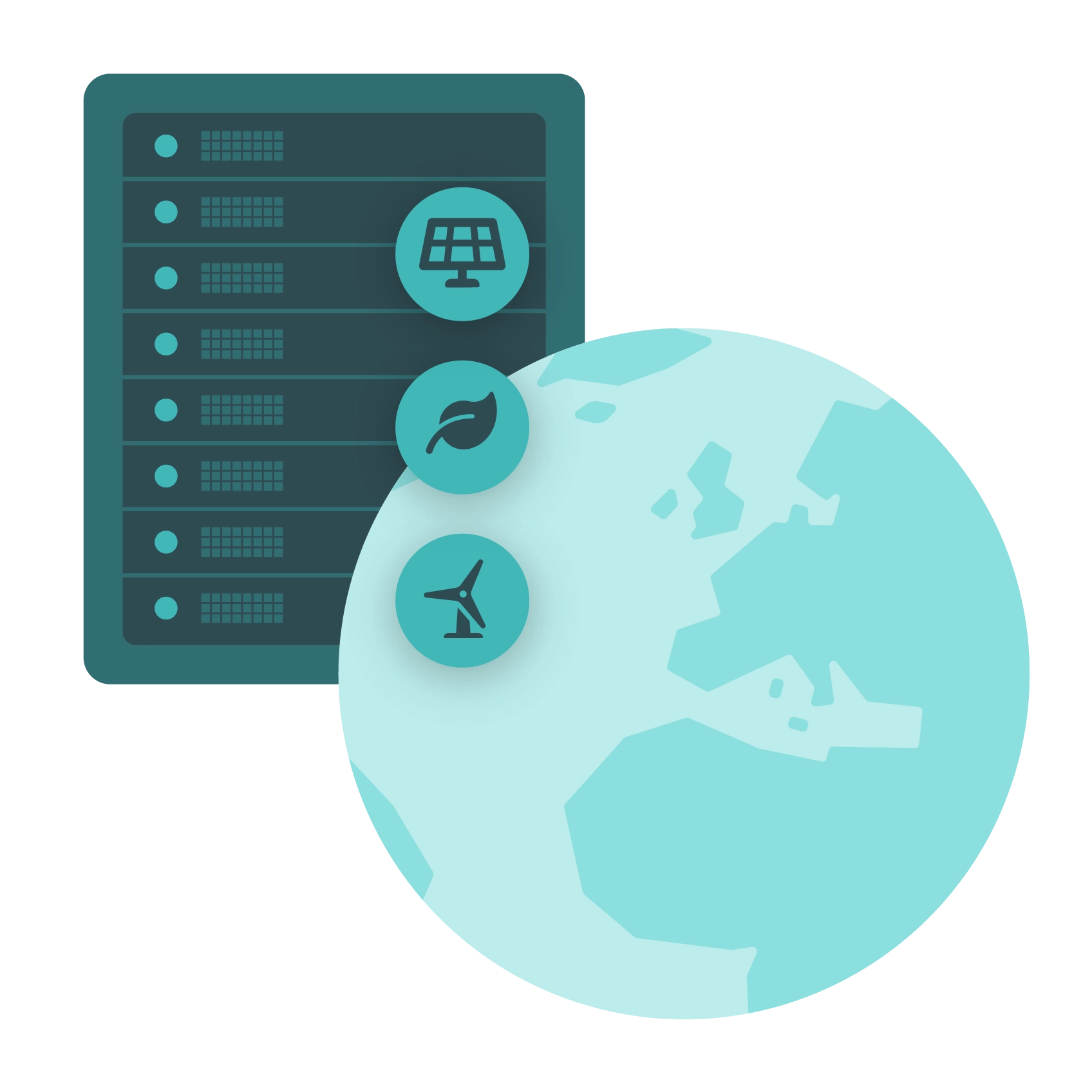Sustainability is at the forefront of almost everybody’s mind, with frequent news circulating about the increasingly urgent need to tackle the ongoing climate crisis. Businesses need to play their part in delivering positive change, both for the sake of the environment, and to safeguard their reputations and thrive in an evolving business landscape.
As agencies of all shapes and sizes pursue new steps to combat their impact on the environment, many are considering taking the bold leap into the realm of B Corporation status.
But what does it mean to become B Corp certified? What are the challenges involved in achieving this prestigious status, and what benefits does it bring?
In this blog, we’ll cover some of the key areas – equipping you with what you need to know before you consider embarking on your own B Corp journey.
What is B Corp certification? A handy introduction
Let’s start with a simple definition. The purpose of B Corp certification is to prove that a company meets high standards of social and environmental performance, transparency, and accountability.
In essence, it signals a business’s commitment to positively impact all stakeholders. It’s about prioritising people over profit, with a strong focus on putting the planet first.
The ethos behind the B Corp movement is about using the power of business to solve social and environmental problems, rather than creating them as a consequence of making a profit.
Certified B Corporations, or B Corps, are for-profit companies that have been certified by the organisation, B Lab, which oversees the certification process. This process requires applicants to meet a strict set of standards, including completing the B Impact Assessment and meeting precise legal requirements.
There are over 6,000 B Corps around the world.

Get started on the road to sustainability.
Watch our webinar and learn the commercial impact of becoming sustainable and tips for starting your own sustainability journey.What are the main benefits of achieving B Corp status?
While becoming a B Corp is largely geared towards prioritising the needs of the planet, it would be unfair to consider this as some kind of profitability sacrifice. Far from it.
There are several challenges involved in reaching B Corp status, but also numerous opportunities that it brings.
A carefully managed approach can reap profitable rewards for your agency, such as increasing loyalty from clients, creating a more committed workforce, opening doors to new opportunities, and preparing your business for the inevitable introduction of environmental legislation.
Here are four key benefits of becoming a B Corp:
1 Outshining your competitors.
Consumers and businesses alike are more discerning about who they give their money to, seeking increasing levels of social and environmental responsibility before making those all-important purchases or investment decisions.
An agency with B Corp status can differentiate itself from the competition, showcasing its dedication to making a positive impact on the environment.
B Corp certification helps businesses build credibility with customers, investors, and other stakeholders who are now seeking agencies that genuinely care about sustainability and social responsibility.
Once you’ve become a B Corp, you can use the B Corp logo and the story behind it to your advantage. Think of it as a strong talking point in sales pitches and throughout your marketing materials to spread awareness of the good you’re contributing to.
Many businesses and investors now recognise that B Corps are more likely to achieve long-term, sustainable success – and they want to become a part of that.
2 Added motivation to prioritise sustainability
B Corp status provides a clear framework for businesses to measure and improve their social and environmental impact. Establishing this framework and working to maintain B Corp status provides the motivation to continuously prioritise sustainability in decision-making processes.
Once an agency has gone through the considerable amount of work required to become a certified B Corp, this should have a hugely positive knock-on effect.
Sustainability is ultimately about the people within a business and their decisions. B Corp status helps to reframe everyone’s thinking. It stimulates new conversations, further reading, and – crucially – positive actions.
The whole team in a B Corp should be engaged in finding new ways of living sustainably, both inside and outside of work. They want to evolve with the business to help secure a more sustainable future for themselves and others.
3 Collaboration with the B Corp community.
Becoming a B Corp in the UK allows agencies to connect with like-minded businesses with similar values.
The collaborative effect of sharing sustainability ideas and learning from each other helps to find ethical and effective solutions to business problems posed by climate change.
It also leads to developing new relationships with environmentally conscious organisations, giving you more control over your supply chain.
The B Corp community hosts various events, from webinars to workshops and networking meet-ups. During these events, members have the opportunity to discuss burning issues, such as sustainable service providers, stakeholder engagement, and how they measure the positive impact of their green agendas.
4 Staff attraction and retention.
Given that B Lab aspires to ensure businesses put people and the planet at the forefront of decision-making, it’s perhaps not surprising to learn that becoming a B Corp can boost an agency’s recruitment drive.
Workers are increasingly seeking companies that make a difference in the world, rather than those that just offer the best salary. If your agency can do both, you’re more likely to recruit top talent.
Agencies that achieve B Corp status will, by their very nature, have practices in place that keep staff engaged with saving the planet. This plays a part in keeping them invested in their company’s mission, and helps them feel more optimistic about the growth of their agency.
Empowering your staff to contribute to making decisions about your agency’s planet-saving efforts will help them feel valued.
What does it take to become a B Corp?
B Corp certification is by no means a quick win. It wouldn’t be such a coveted standard if B Lab handed it out frivolously.
It’s much more than simply a badge of honour – it’s a serious commitment to doing business using more efficient and sustainable methods. So this, naturally, carries with it some significant hoops to jump through.
One of the qualifying criteria is that a business must turn a profit in a competitive market and have been operational for at least 12 months. But it’s worth noting that companies that have been in operation for less than a year can become a Pending B Corp and use the accompanying logo until they’ve qualified for full membership.
Applicants must complete and submit the B Impact Assessment (BIA). This free online tool is tailored to each company’s size, sector, and location, and it consists of around 200 questions.
It’s used to measure social and environmental performance, and as you might expect, your answers will need to be backed up with documentation to verify your claims. You can gauge which qualifying areas your agency might need to work on before you submit your application and pay the application fee.
Certified B Corporations pay an annual certification fee based on total revenue for the previous 12 months, and all B Corps are required to re-apply for their certification every three years.
So, should you apply to become a certified B Corp?
Inevitably, this is a complex question that only you and your agency team can answer. But if you’re serious about elevating your agency’s green credentials and you’re ambitious enough to reap the significant benefits that becoming a B Corp can bring, it’s worth pursuing.
According to B Lab, 88% of B Corps would recommend obtaining certification to other companies. It’s a compelling statistic and one that might convince you to start your B Corp journey.
But even if you’re not sure, B Lab’s free access to the BIA at least gives you an opportunity to evaluate your agency’s current status and identify areas for improvement before submitting an official application.
The depth of free best practice resources available from B Lab may help you better understand your business and discover an achievable route to a more sustainable and profitable existence. Regardless of the certification, this would be a positive outcome for your agency and the planet.
Whatever approach you take towards becoming more eco-friendly, we hope this blog has been useful. At Nimbus, we’re helping ambitious agencies reduce their carbon footprints with our managed web hosting solutions, which run entirely on renewable energy.
For more expert tips and advice from our knowledgeable team of planet-friendly web-hosting geeks, check out our blog site, or explore our resource hub.

